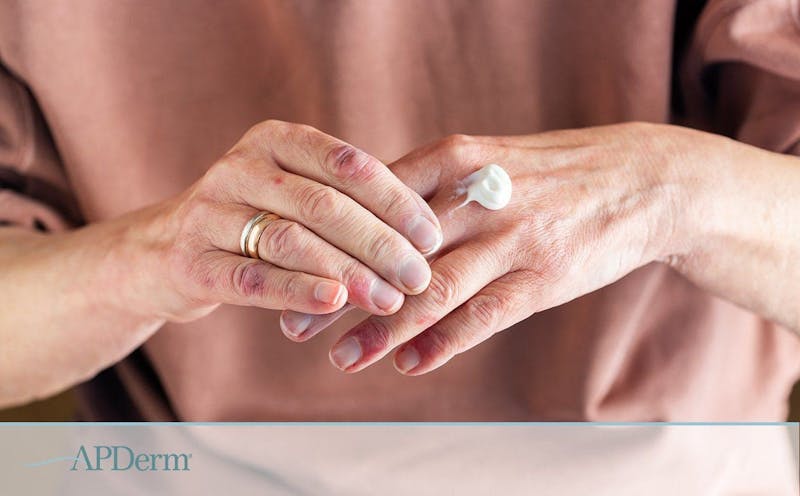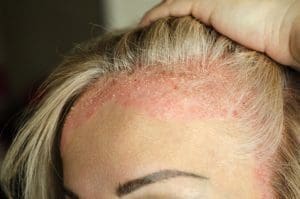Your Family Deserves the Best Care Book an Appointment
Your skin health matters, so don’t delay. Our clinicians look forward to treating you and your family at one of our local New England practices.
Find Your Nearest APDerm Center
On October 29th each year, the global medical community observes World Psoriasis Day. Here’s what you need to know about this autoimmune skin condition.
World Psoriasis Day is observed annually on October 29th, which is a time to shed light on this skin condition that affects around 125 million people worldwide. This includes a handful of celebrities, including Kim Kardashian, LeAnn Rimes, and Cara Delevingne. The key hallmark of this affliction is a rash accompanied by scale-like plaques of dead skin. While not harmful, it can be a source of physical and emotional discomfort for patients.
Do you, or does someone you know, have psoriasis? Here’s what you should know about it.
There is a societal stigma around rashes as people are worried that they could be contagious. This condition is not contagious, and can’t be spread to others. It is believed to be passed down through your family.
A lot of research still needs to be done on this condition. What dermatological scientists have discovered, however, is that it is an autoimmune disease. This is when the body’s immune system malfunctions and attacks healthy tissue and cells.
There is currently no cure for this skin disorder. Fortunately, there are several ways to approach treating it. These can include topical ointments such as steroids and over-the-counter creams. Becoming aware of and avoiding triggers also helps significantly.
The most common areas on the body where those with this condition experience flare-ups are the knees, elbows and scalp. It can, however, appear anywhere, such as the hands and nails, feet, face and even in-between folds of skin.

And it’s not just things that come into contact with your skin that can cause a flare-up. Stress is a very common trigger for many patients, as are certain types of food, such as alcohol, caffeine, gluten, dairy, and processed items.
If you have this skin condition and need help keeping it under control, click here to schedule an appointment with one of our caring dermatologists.